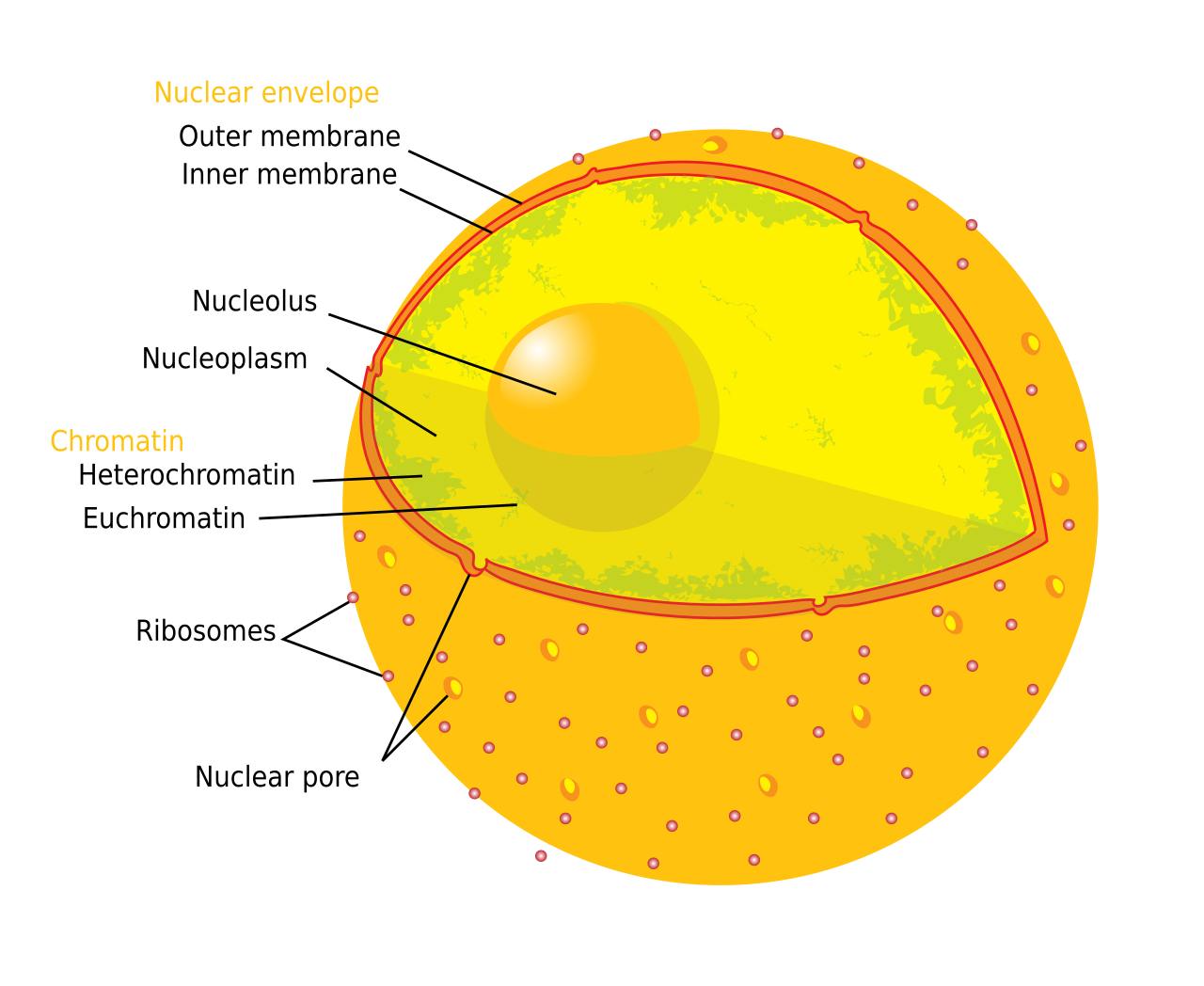Nuclear Analysis Services
- Profiling nuclear protein expression under defined conditions
- Analysis of transcriptional regulators, protein interaction networks, and post-translational modifications (e.g., phosphorylation, glycosylation)
- Subcellular localization mapping and domain architecture characterization
- Investigation of protein–DNA and protein–protein interactions
- Identification and quantification of nucleus-enriched small molecules
- Comparative metabolite profiling under variable physiological states
- Integrated analysis with proteomics for pathway-level insights
- Comprehensive profiling of lipid classes, saturation levels, and chain length distributions
- Identification of differentially expressed lipid species
- Quantitative analysis of nuclear fatty acids and signaling-relevant lipid mediators
- Proteomics: ≥100 μg total protein or ~1×10⁷ cells per sample
- Metabolomics/Lipidomics: ≥50 mg tissue or ~1×10⁷ cells
Eukaryotic cells are composed of highly organized structural systems. Among these, the nucleus functions as the largest and most intricate organelle, serving as a central hub for genetic information storage and regulation. It orchestrates gene transcription, DNA replication and repair, and integrates intracellular and environmental signals. Beyond its role in chromatin organization and RNA processing, the nucleus also participates in stress response and metabolic regulation, facilitated by specialized substructures such as the nucleolus, nuclear pore complex, and nuclear matrix.

Figure 1. Schematic Diagram of Nuclear Structure
With the advancement of high-resolution mass spectrometry and integrative multi-omics strategies, comprehensive profiling of nuclear proteins, metabolites, and lipids has become a powerful approach for deciphering molecular mechanisms underlying cell fate determination, stress adaptation, and developmental biology.
At MtoZ Biolabs, we have developed a dedicated nuclear omics platform that combines state-of-the-art instrumentation with expert bioinformatics, offering end-to-end Nuclear Analysis Services to support both basic research and translational applications.
Services at MtoZ Biolabs
MtoZ Biolabs offers a comprehensive portfolio of Nuclear Analysis Services, enabling high-resolution molecular interrogation of the nucleus and its functional compartments. Our offerings include:
· Nucleus Isolation and Nuclear Protein Purification Service
We employ density gradient centrifugation and immunoaffinity-based protocols to isolate high-purity nucleoli, nuclear pore complexes, and nuclear matrix fractions, ensuring structural specificity and biological relevance for downstream assays.
· Nuclear Proteomics Services
Our services encompass expression, functional, and structural proteomics approaches, including:
· Nuclear Metabolomics
We conduct high-resolution profiling of nuclear metabolites to support studies in developmental regulation and stress signaling:
· Nuclear Lipidomics
Our lipidomic workflow reveals structural and functional roles of nuclear membrane lipids:
Analysis Workflow
1. Sample Preparation
We accept a variety of sample types, including cultured cells, tissue specimens, and clinical biospecimens. Detailed sample preparation guidelines are provided to ensure high-quality submissions suitable for nuclear omics workflows.
2. Nucleus Isolation and Purification
Intact nuclei are isolated using optimized lysis and density gradient protocols. Subnuclear compartments such as the nucleolus, nuclear envelope, or nuclear matrix may be further separated based on project requirements.
3. Mass Spectrometry Analysis
Samples are analyzed using LC-MS, GC-MS, or hybrid platforms, enabling high-coverage qualitative and quantitative characterization of nuclear proteins, metabolites, and lipids.
4. Data Analysis and Reporting
We perform robust data quality control, differential analysis, functional annotation, and pathway enrichment using advanced bioinformatics pipelines. Clients receive a comprehensive, publication-ready report with visual summaries and biological insights.

Sample Submission Suggestions
To ensure optimal results from our Nuclear Analysis Services, we recommend following the submission standards below:
1. Accepted Sample Types
Human and animal cell lines, plant tissues, and frozen clinical specimens are all supported. If subnuclear components are of interest, such as the nucleolus or nuclear envelope, please notify our team prior to submission.
2. Suggested Input Amounts
For limited or precious samples, low-input workflows may be available upon evaluation.
3. Storage and Shipping
Immediately snap-freeze samples in liquid nitrogen and store at –80 °C. Use sufficient dry ice for shipping to prevent thawing and maintain molecular integrity.
For any uncertainties during sample preparation, our technical specialists are available to provide customized guidance tailored to your experimental design and project objectives.
Why Choose MtoZ Biolabs?
Nuclear Analysis Services from MtoZ Biolabs are designed to maximize data depth, biological relevance, and research value:
✅ Advanced Analysis Platform: Equipped with Thermo Orbitrap, Q Exactive, and nanoLC systems, ensuring high-resolution, high-sensitivity nuclear omics analysis.
✅ Subnuclear Compartment Coverage: Capable of parallel analysis of nuclear proteome, metabolome, and lipidome, enabling spatially resolved functional insights.
✅ Cross-Species Applicability: Compatible with nuclei from mammalian, plant, and microbial sources, covering cell lines, tissues, and clinical-grade materials.
✅ Integrated Proteomic Strategies: Supporting differential expression, PTM profiling, interaction mapping, and structural-functional annotation within one platform.
✅ One-Time-Charge: Our pricing is transparent, no hidden fees or additional costs.
While Nuclear Analysis Services address the complexity of nuclear functions, cellular regulation is inherently multi-organelle. To support systems-level research, MtoZ Biolabs also offers organelle-resolved omics services for mitochondria, chloroplasts, endoplasmic reticulum, Golgi apparatus, and peroxisomes, including isolation, proteomics, metabolomics, and lipidomics.
Our integrative approach enables researchers to explore inter-organelle dynamics and functional networks at unprecedented depth. Contact us to design a solution aligned with your research goals.
Related Services
Mitochondrial Analysis Services
How to order?







